
Nature
17:43, 25-Oct-2018
Newborn baby orangutan Java unveiled at Paris zoo
Updated
17:39, 28-Oct-2018
CGTN
01:08
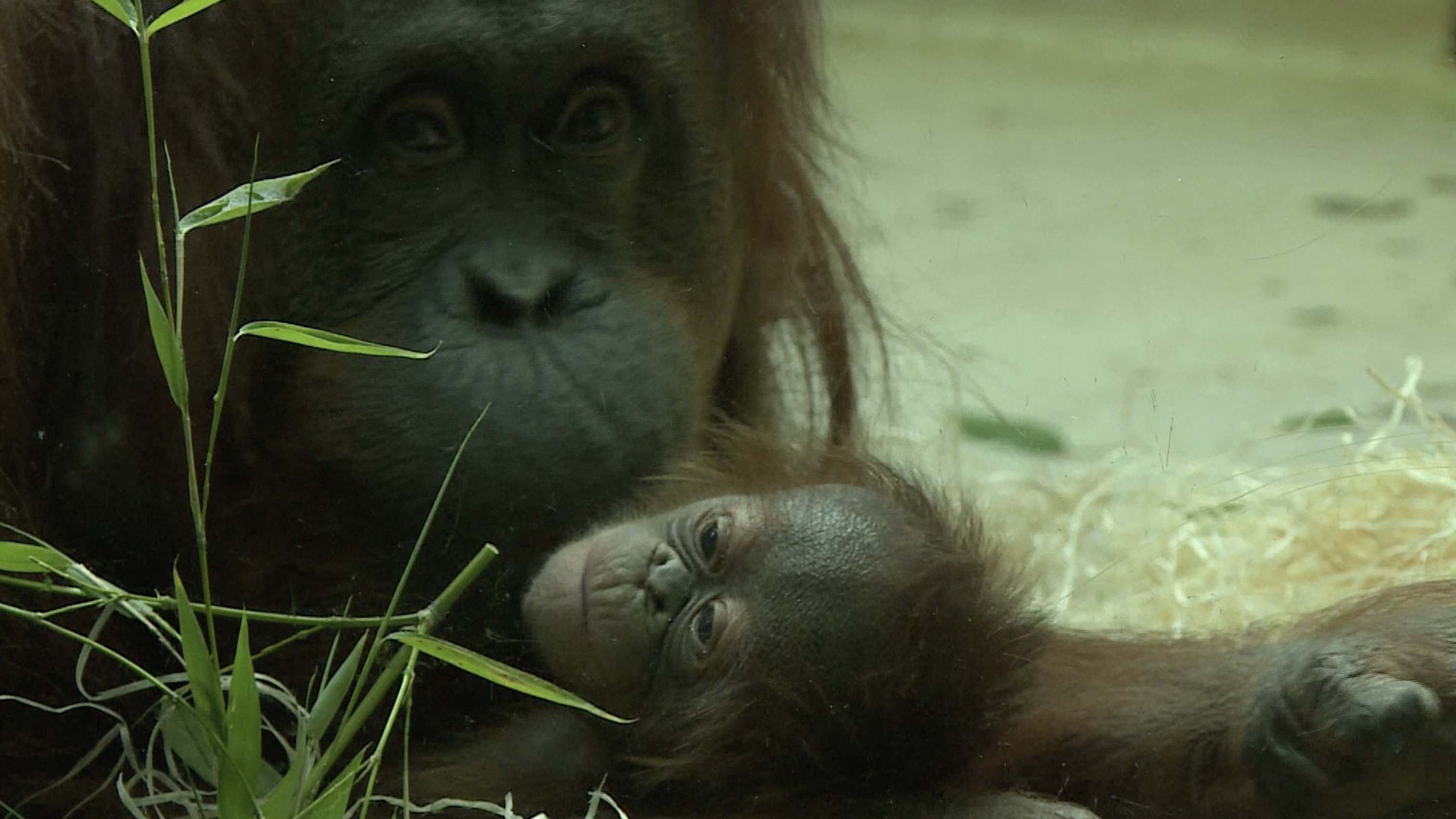
A Paris zoo has welcomed a new addition to its menagerie – a baby Borneo orangutan called Java.
The zoo at the French capital's Jardin des Plantes (Botanical Gardens) said Java, a female, was born in the afternoon of Oct. 17. It was mom Theodora's third time giving birth while dad Banggi became a father for the first time.
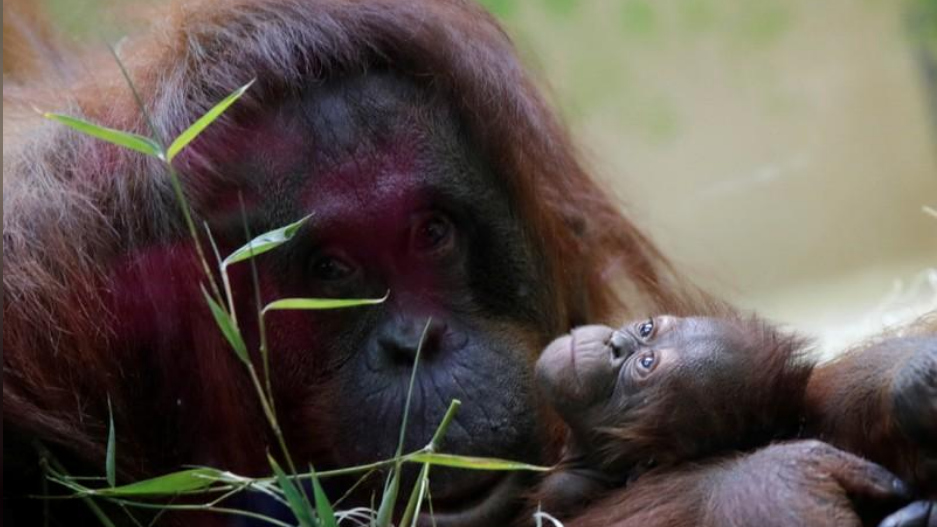
Orangutan Theodora and her newborn daughter Java are seen at the zoo of the Jardin des Plantes in Paris, France. /Reuters Photo
Orangutan Theodora and her newborn daughter Java are seen at the zoo of the Jardin des Plantes in Paris, France. /Reuters Photo
As journalists snapped pictures of mother and baby on Wednesday, Theodora cradled Java in her arms before putting her over her shoulder.
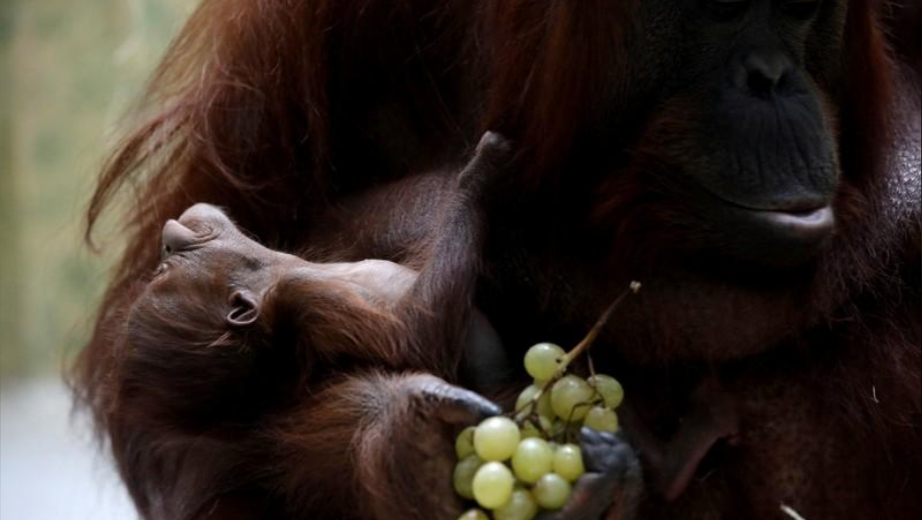
Java is relaxing in the arms of her mother Theodora. /Reuters Photo
Java is relaxing in the arms of her mother Theodora. /Reuters Photo
“She's doing very well. She's suckling well. We're lucky to have an established closeness between the zookeepers and the mother, who directly came to introduce the little one to them,” veterinarian Dylan Duby said.
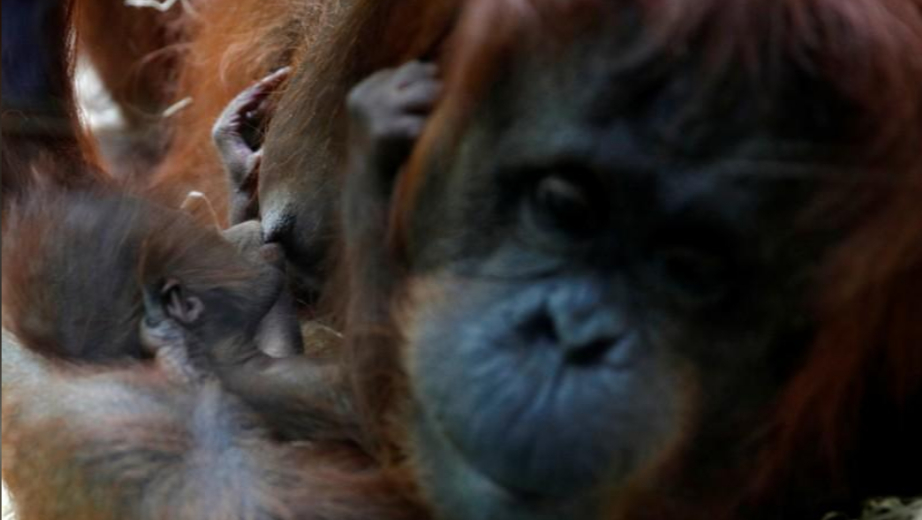
Java is suckling. /Reuters Photo
Java is suckling. /Reuters Photo
“That's also how we managed to evaluate her general condition while keeping our distance of course, because our main concern is to not influence the relationship currently being built between mother and child.”
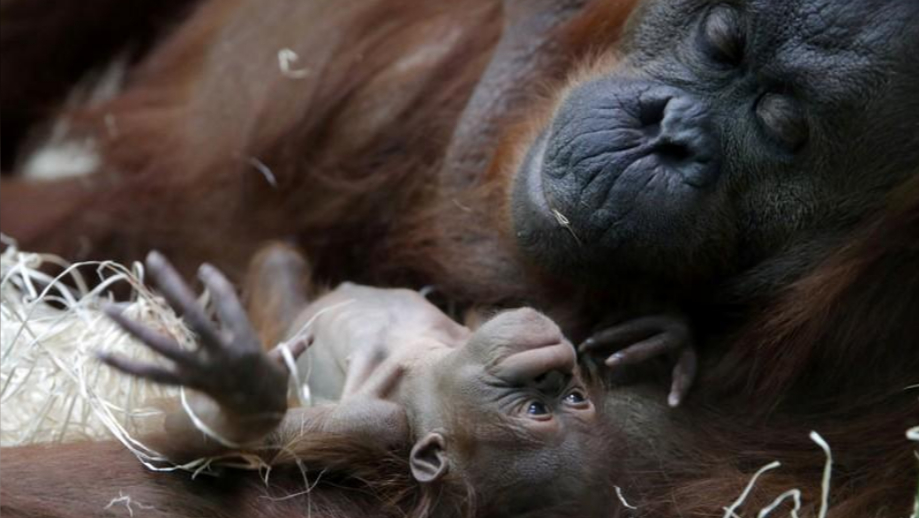
Java keeps her eyes wide open while her mother is resting. /Reuters Photo
Java keeps her eyes wide open while her mother is resting. /Reuters Photo
The zoo said Java was the first orangutan born there since 2005. It plans for Theodora to raise her before eventually sending Java to a different zoo.
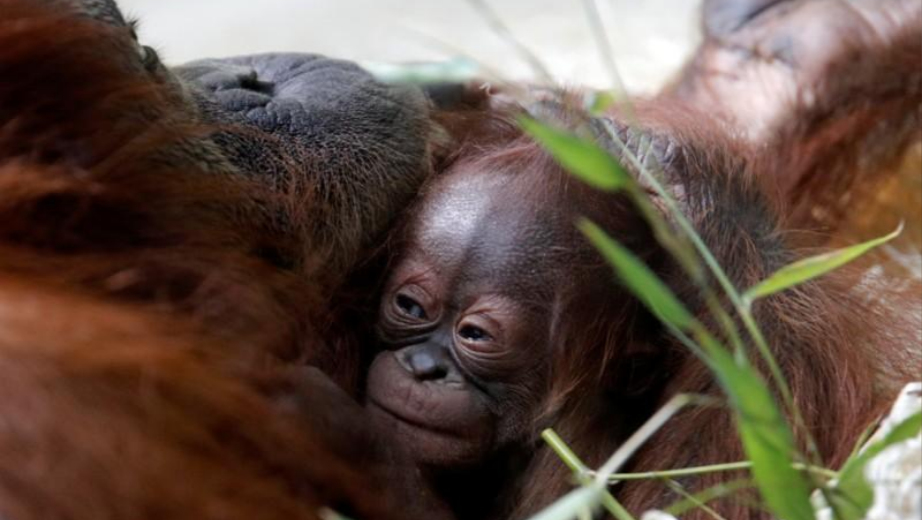
Java is looking at her mother Theodora. /Reuters Photo
Java is looking at her mother Theodora. /Reuters Photo
“We are going to wait about 10 years so her mother can finish raising her and then she'll be able to go,” Duby said.
Both Borneo and Sumatran orangutans, which live in forests in Malaysian and Indonesia, are classified as “critically endangered” according to The International Union for Conservation of Nature, with hunting and destruction of their habitat the main causes hurting their populations.
Source(s): Reuters

SITEMAP
Copyright © 2018 CGTN. Beijing ICP prepared NO.16065310-3
Copyright © 2018 CGTN. Beijing ICP prepared NO.16065310-3